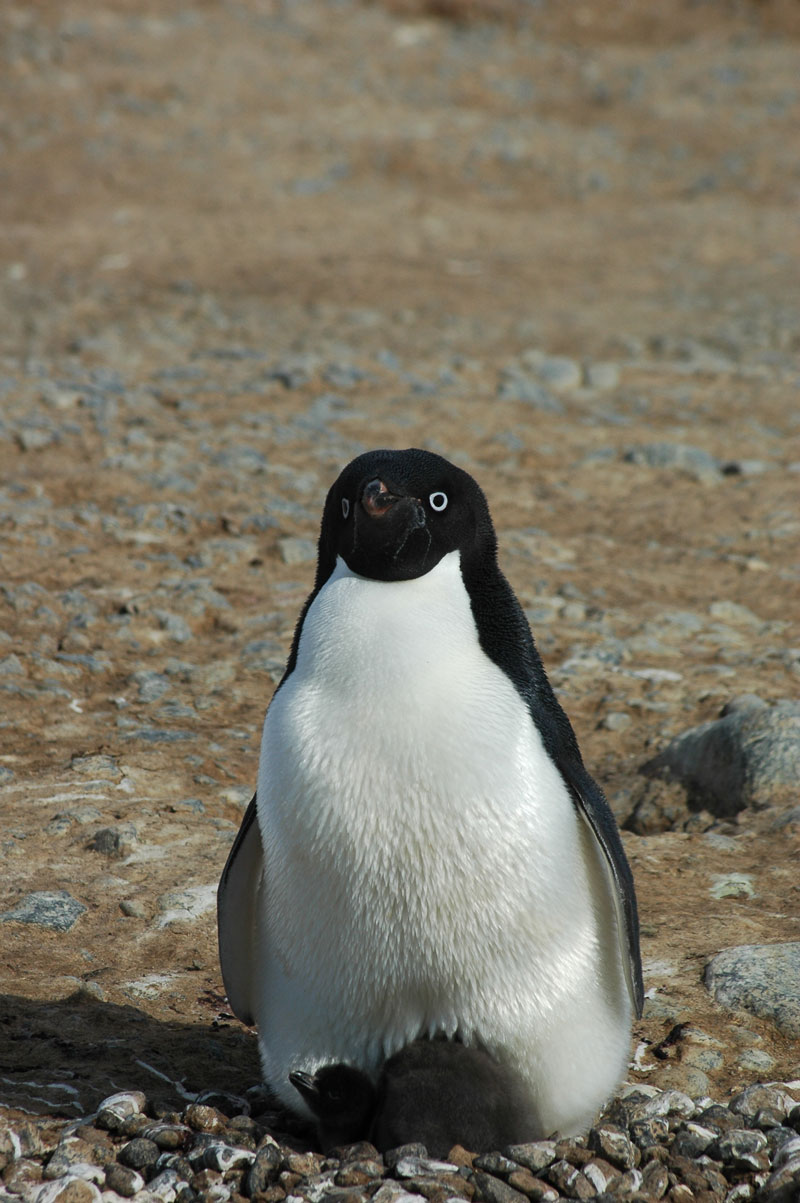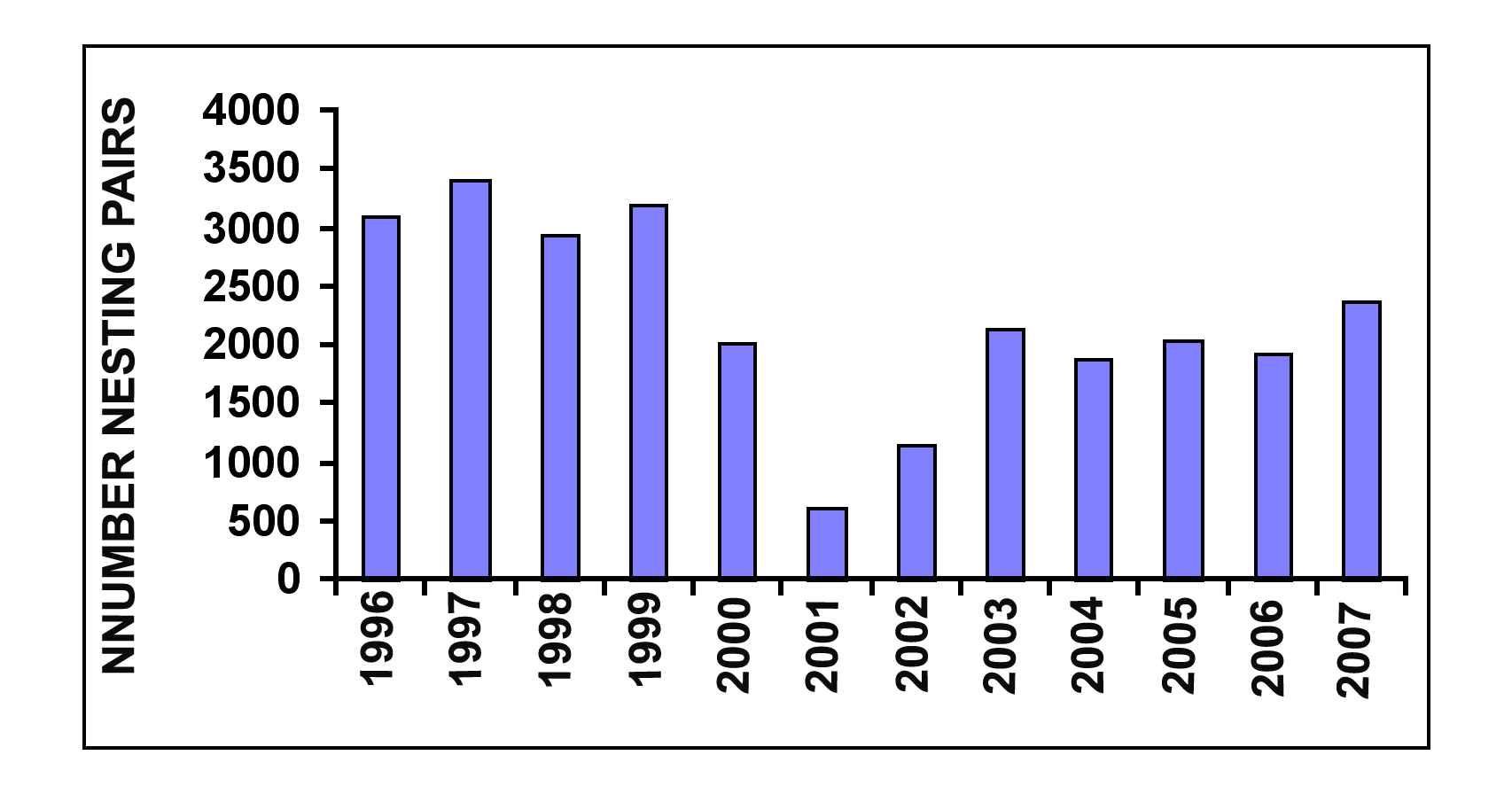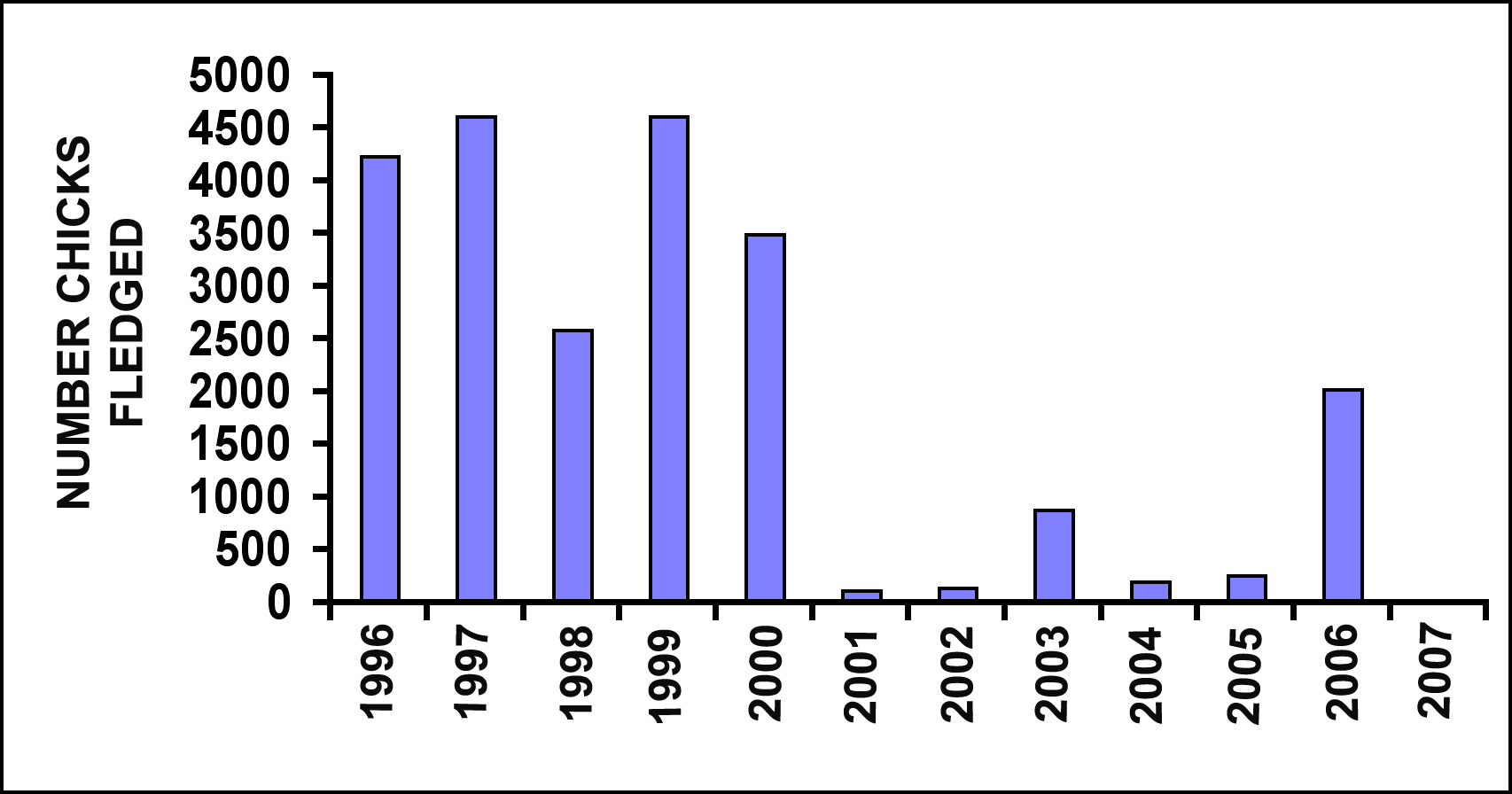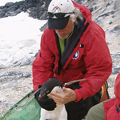Hatching Eggs
CAPE ROYDS, ANTARCTICA– Today the first eggs hatched here at Cape Royds, a few days later than the timing of this event last year.

The colony is eerily quiet. Seems like there should be some young birds beginning to show up to investigate the colony for future breeding. This usually begins to happen at about the start of egg hatching. It’s likely that the lack of any chick production for most of the past years, 2001 through 2005 (slight exception for 2003), is the main cause. Those were the years when the immense B-15 iceberg, and more directly the extensive sea ice that built up south of it, led to pretty much total breeding failure at Cape Royds. The ice was so extensive that the penguins essentially gave up in their breeding attempts; the fact that as many showed up as they did was amazing enough.

The mega-icebergs that moved into place in the late summer of 2001 (Jan-Feb). Until then only pack ice– covered waters lapped the shores of the penguin colonies shown here. With the bergs, continuous ‘fast ice’ formed to cover all of McMurdo Sound and nearby waters, that ice remaining in place for most of the penguins’ breeding season.
It was very windy in 2003, so the forces overcame the iceberg blockage and the reduced number of breeders at Royds did fairly well. Adélie penguins don’t visit their colonies until 2-3 years of age, and on average don’t begin to breed until 4-5 years old. Thus the lack of young birds present this year can be traced back to the lack of breeding success in 2001-05 (see the graphs below).

The number of Adélie penguin pairs attempting to nest at Cape Royds during the past 12 years. The extensive fast ice occurred during 2001-2005, but broke out around hatching time in 2003. The ice discouraged penguins from nesting, especially during the first 2 years of the icebergs (2001-2003).

The number of Adélie penguin chicks that fledged from Cape Royds during the past 12 years. We don’t know yet for 2007, but it should be at least as many, perhaps a few more, than in 2006. The effects of the extensive fast ice during 2001-2005 are clearly evident.
The lack of young birds present this season could still lead to repercussions for breeding success. Usually those young birds ward off the skuas, which are out to steal chicks from nests. It’s not that these penguins are protecting someone else’s chicks but just the very thought of a lurking skua is enough to excite any penguin who does not have to remain at his/her nest to protect eggs or chicks. Penguins hate skuas.










Hi! My name is Julia and I am 7 years old. I think that writing this story for kids was a genius idea. I loved it! I loved the story about the penguins, and I’m sure other kids would LOVE it too. I learned that penguins hate skuas because they steal and eat unhatched baby penguin eggs! I don’t like skuas either! My mother says skuas are an important part of Antarctica!
KEEP UP THE GOOD WORK!!!!!!!!!!!!!!!!!!!! : )
hi my name is kasie thank u for shoing me the bababbys. thank u a lot. I am a 1st grade.
I love your great science work. You are the best guy I know. Keep up the great work.
Smiles
Katie Wilhelm 1ST Grader
Hi Julia, Kasie, and Katie– I’m so glad that you’ve been enjoying the dispatches on this site. I encourage you to keep reading and looking through the different posts– you’ll find some great penguin photographs too. An important part of what we do is reaching out to kids like you in classrooms all around the world– so it’s great to know you’ve been enjoying it! If you’d like to do some fun penguin-related activities, you can go to our other website penguinscience.com to track specific nesting penguin pairs and learn about the special ways penguins evolved to adapt to their harsh environment. Just click on: http://www.penguinscience.com/classroom_home.php. Please don’t forget to come back here for all our dispatches and any other questions or comments you might have.
As for your thoughts on skuas, Julia, the penguins would definitely agree with you: they hate skuas too. That’s why they have the adolescent penguins patrol the outside of the nesting areas to drive away skuas by running and making noises at them. But your mom is also right– skuas are just as important to the Antarctic ecosystem as penguins are. They both live in balance with the rest of the ecosystem there, and have for thousands of years.